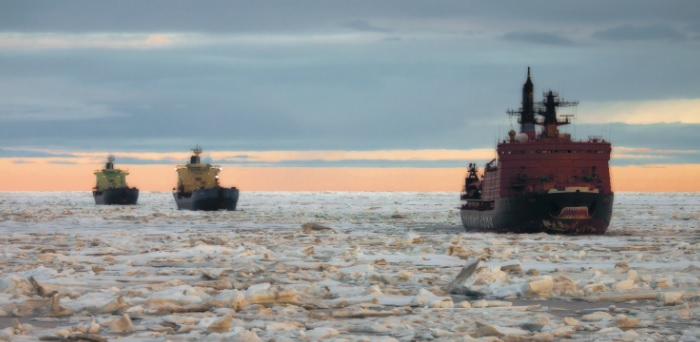IMO’s MEPC 73, which concluded on Friday, considered impact assessment methodology ahead of sending the ‘Scope of Work’- which sets out the work to be done to reduce the risks associated with the use and carriage of heavy fuel oil as fuel by ships in Arctic waters, including the proposal for a ban, to the on Pollution Prevention and Response subcommittee (PPR6) in February 2019.
Support for commencing work, to mitigate the risks of using and carrying HFO fuel in the Arctic which includes developing a ban, at the PPR6 technical meeting, in February 2019, was voiced by Austria, Bangladesh, Canada, Denmark, France, Germany, Iceland, Ireland, Netherlands, New Zealand, Norway, Spain, Poland, and the UK.
The Clean Arctic Alliance and indigenous groups welcomed the support given by member states to commence work on developing a ban on the use and carriage of HFO in Arctic waters.
On 24 October, a delegation of Arctic Indigenous leaders and marine and environmental experts delivered a petition signed by 104,000 concerned people from countries across Europe and North America, to cruise giant Carnival Corporation in UK, demanding that it cease burning dirty HFO in Arctic and Subarctic.
I welcome the progress made this week by the International Maritime Organization to develop a ban on the use and carriage of HFO as fuel in Arctic shipping – a ban that must be in place as soon as possible. Our Arctic communities, wildlife and ocean need it, as they are already stressed by climate change and increased shipping in the region. The world depends on and benefits from a healthy Arctic Ocean,
…said Delbert Pungowiyi, President of the Native Village of Savoonga, Alaska.
When burned for ship fuel, HFO releases enormous amounts of black carbon. When that soot deposits on the pristine Arctic ice, it accelerates the rate of ice melt. In addition, a spill of heavy fuel oil in the harsh and often inaccessible Arctic waters would be impossible to clean up and would be a long-term environmental disaster, as it persists in the environment for much longer periods of time, due to its thick, tar-like consistency.
We’re pleased with progress made at MEPC this week, and the support given by several member states to ensure that work to develop a ban on use and carriage of heavy fuel oil by ships in Arctic waters will now commence early in 2019. It is important that this work is concluded swiftly, so that the ban can be adopted in 2021, and phased in by 2023. We look forward to considering information from Arctic countries including Canada, United States, Greenland (Denmark), and Russia, on the potential social, economic and environmental impacts of a ban,
…said Dr Sian Prior, Lead Advisor to the Clean Arctic Alliance.




























































